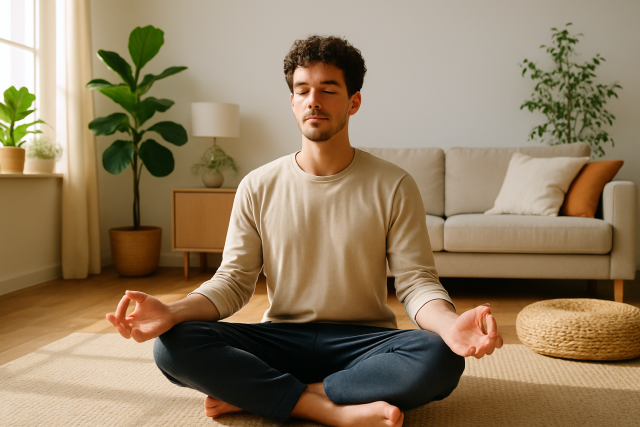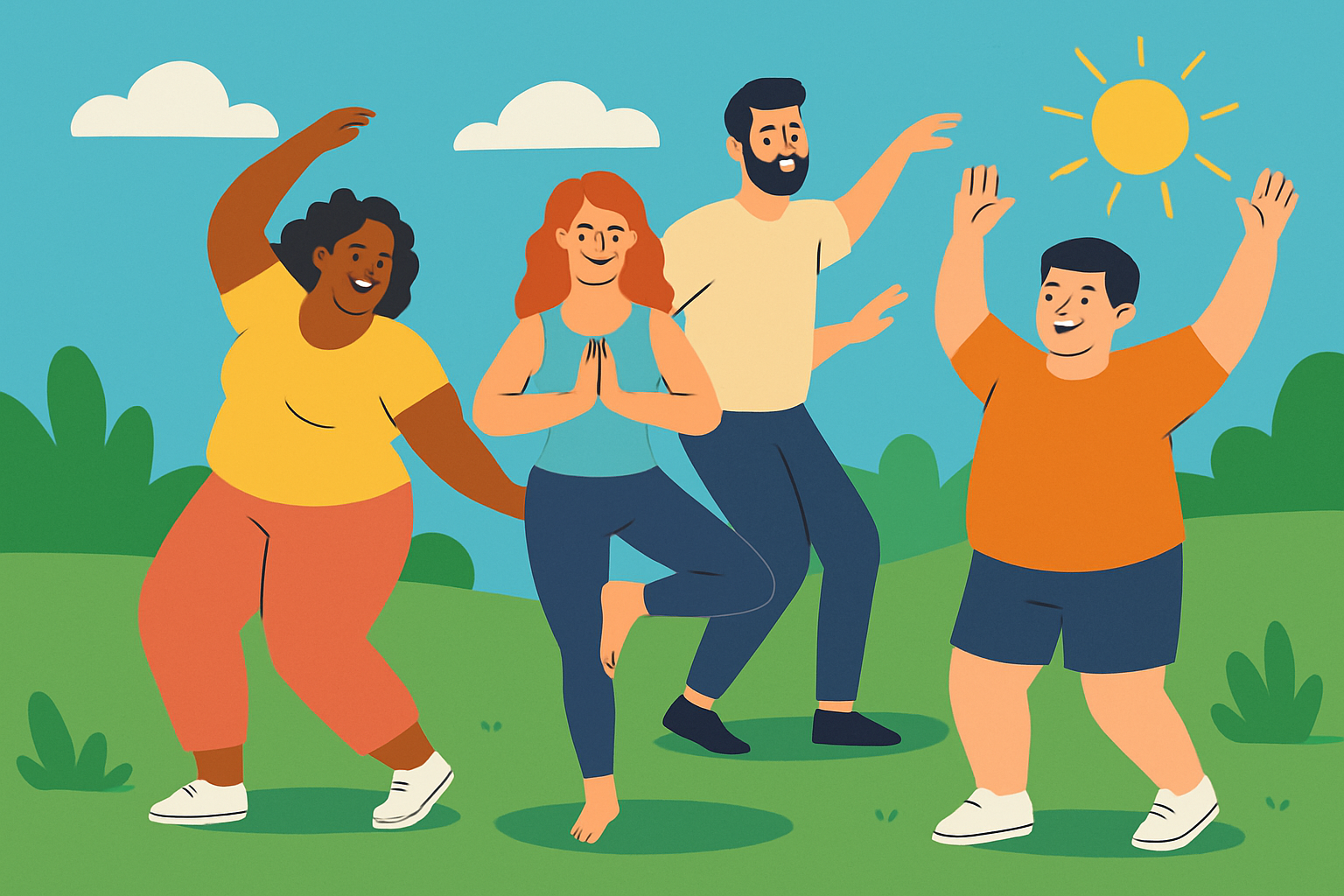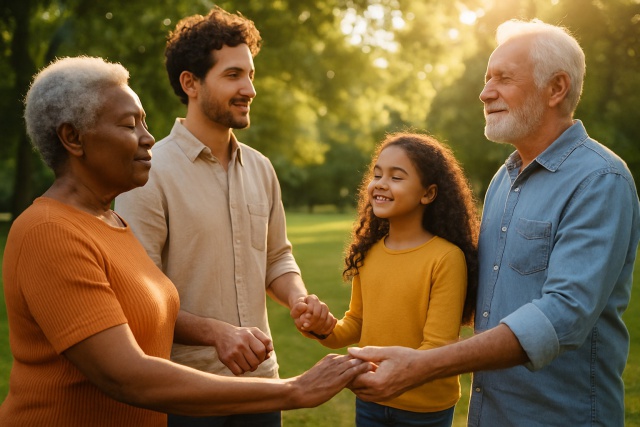
Simple Ways for Elevating Your Mind Through Daily Practice
Elevate your mind every day with simple, expert-backed practices that sharpen focus, boost creativit...
In a world flooded with images at every turn, understanding body image feels more important than ever. Positive body image isn’t just skin deep. It’s about how we truly see and connect with our bodies and all their imperfections.
Body image is how someone pictures their own physical appearance in their mind shaped by a mix of thoughts, feelings and perceptions that often sneak up on us. It’s not just about what you see in the mirror but also about how you emotionally connect with your body—like an ongoing conversation between you and yourself. This mental and emotional picture can shift and evolve over time. It is influenced by life's ups and downs and moments of quiet self-reflection we all stumble upon. When we talk about body image we are really diving into how someone feels about their size, shape and features along with how they judge and accept themselves.
Positive body image is about having a balanced and accepting view of your body paired with heartfelt appreciation. Unlike negative body image that drags you down with dissatisfaction and harsh self-criticism, positive body image welcomes your physical self—flaws and all—with kindness and genuine respect.
Many individuals assume that having a positive body image means feeling flawless or always being head-over-heels in love with your body. It’s more about being gentle and forgiving with yourself.
Positive body image is shaped by a mix of factors including early family attitudes, cultural expectations, media exposure, social interactions and personal milestones that sneak up on us. Take friendships for example. Having pals who truly value what’s inside rather than looks usually nudges us toward a healthier way of seeing ourselves.

It's amazing how much our body image can shape the way we feel inside. When we look in the mirror and like what we see, it’s not just about vanity—it’s a key player in our mental well-being. A positive body image gives us a boost, helping to keep anxiety and self-doubt at bay, while also making it easier to handle life's curveballs. On the flip side, a negative view of ourselves can sneak in and gnaw away at our confidence, sometimes leading to more serious mental health challenges. So, taking the time to nurture a healthier relationship with our bodies really pays off, both mentally and emotionally—trust me, it is worth the effort.
Body image and mental health go hand in hand more than many might realize. When individuals see their bodies in a positive light, it usually boosts their emotional well-being and self-esteem and helps them roll with the punches better.
Struggling with a negative body image often goes hand in hand with tough mental health challenges like eating disorders and persistent depression. It can also cause social isolation and a serious hit to self-esteem.
"Treating your body with a little kindness goes a long way in boosting mental strength and a genuine sense of well-being. When we begin to see our bodies as teammates rather than opponents, it lays down a sturdy foundation for lasting mental health and a noticeable boost in self-confidence." — Dr. Amelia Rivers, Clinical Psychologist
Fostering a positive body image isn’t just a nice-to-have; it’s a game changer for self-esteem and overall well-being. From my experience, it’s about more than just flattering mirrors or pep talks. It’s a mindset shift that takes time, patience, and a sprinkle of self-compassion. Embracing what makes you uniquely you, celebrating small daily wins, and cutting yourself some slack on tough days all play a part in building a kinder, more appreciative relationship with your body. So, let’s dive into some practical, down-to-earth strategies that can help nurture that positivity day in, day out.
Improving body image often comes down to simple, everyday habits that quietly add up over time. Little, consistent efforts nudge you toward self-kindness and give you a leg up against those pesky negative cultural messages.
For those wrestling with tough body image issues and the mental health rollercoaster that often rides shotgun, seeking professional help through therapy or counseling can genuinely turn the tide. Therapists offer a safe and supportive space where you can explore deeper struggles, share practical coping tools and guide you toward kinder and healthier ways of seeing yourself.
Society, advertising and social media wield a huge influence in shaping our body image by pushing narrow and often unrealistic beauty ideals that leave countless experiences out in the cold. These cultural messages pile on pressure and can seriously chip away at how people feel about their own bodies and take a toll on mental health. With edited photos and picture-perfect looks bombarding us nonstop, it is easy to fall into the trap of comparison and self-doubt.
| Common Media Messages | Realistic and Diverse Representations | Impact on Body Image |
|---|---|---|
| Thinness is ideal | Bodies come in every shape, size, and ethnic background you can imagine | Supports acceptance and eases those painful, unfair comparisons |
| Flawless skin and perfect features | Showing natural features, wrinkles and all, imperfections included | Helps normalize diversity and cuts down on harsh self-criticism |
| Youth equals beauty | Celebrating beauty at every age, because life doesn’t stop at 25 | Gives a much-needed boost to self-esteem no matter the stage of life |
| Fitness must look a certain way | Highlighting fitness and health in all their wonderful, varied forms and abilities | Shifts the focus away from just looks toward what our bodies can actually do, which feels way more meaningful |
| Constant transformation is needed | Promoting body positivity through thoughtful campaigns and initiatives | Builds confidence while making us question those unrealistic, exhausting standards |
Movements promoting positive body image like body positivity and body neutrality have really taken off and challenge narrow beauty standards that have lasted too long. They encourage genuine acceptance of every body type, highlight diverse perspectives, and push for more inclusive representation in fashion, media and advertising. These efforts matter big time because they reshape how culture views health, self-worth and identity.

Elevate your mind every day with simple, expert-backed practices that sharpen focus, boost creativit...

Learn advanced tips and expert techniques to help young athletes build mental toughness, stay focuse...

Discover how specialized therapy for generational trauma breaks cycles of inherited pain, offering p...

Contempt is a toxic emotion that can erode love and respect in relationships. Discover what contempt...